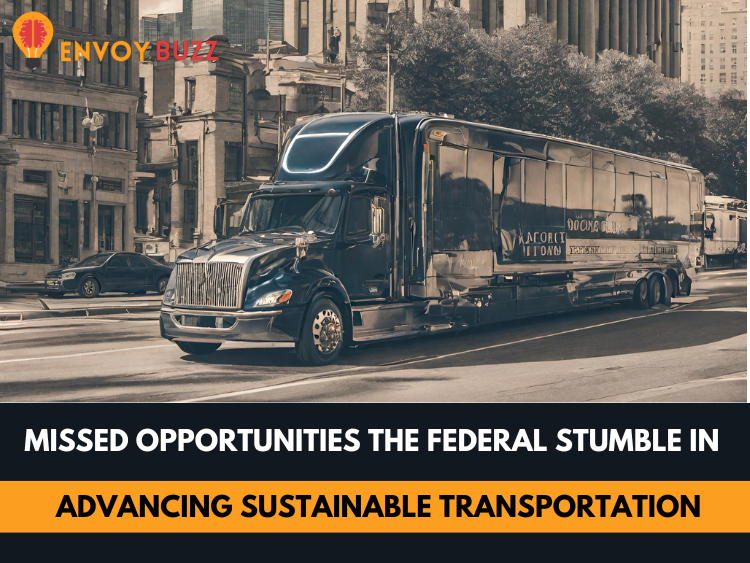In the realm of sustainable transportation advocacy, 2023 proved to be a challenging year, overshadowing the positive strides made in reducing car dependency. This article delves into the disheartening developments that unfolded, ranging from record-breaking road death tolls to missed opportunities for positive change.
The year commenced with grim news as the final road death toll for 2022 shattered previous records. This unfortunate reality set the tone for what would unfold for sustainable transportation advocates.
An alarming statistic emerged, revealing the highest number of pedestrian deaths in 41 years. Paradoxically, this surge transpired as evidence suggested a decline in Americans’ walking habits, painting a perplexing picture for advocates.
Despite numerous opportunities to reverse the alarming trends, the federal government’s response left much to be desired. Key moments, such as the withdrawal of a memo urging states to prioritize existing highways, showcased a lack of commitment to sustainable initiatives.
In March, Republican lawmakers and the Government Accountability Office applied pressure on the Biden administration, resulting in the withdrawal of a memo aimed at redirecting infrastructure focus. The repercussions of this decision reverberated across the nation.
In the absence of federal guidance, states continued their path of asphalt expansion. Even states with Democratic governors, such as Maryland, seemingly overlooked climate platforms in favour of highway projects, raising questions about the true commitment to sustainability.
Boondoggles like the Interstate Bridge Project garnered massive federal grants, despite advocates demonstrating the fiscal irresponsibility of such endeavours. The disconnect between climate goals and actual project allocations became glaringly evident.
Projects intended to “Reconnect Communities” torn apart by freeways faced scepticism, with accusations that they were merely “highways by another name.” The failure of such infrastructure to address the core issues further fuelled disillusionment among advocates.
The National Highway Traffic Safety Administration faced criticism for allegedly caving to pressure from trucking industry lobbyists. The alteration of a crucial report on “underride” crashes, with a significant underestimation of lives lost, raised concerns about transparency and accountability.
In a shocking revelation, a Seattle police officer’s comments regarding the paltry settlement for a pedestrian’s death highlighted a broader issue – the devaluation of pedestrian lives in civil crash settlements. The callousness of such remarks underscored the need for systemic change.
The decline in mass transit ridership in various cities compounded the challenges for sustainable transportation. Simultaneously, assaults on transit operators surged, pointing to a broader crisis in public transportation safety.
The rise in assaults on transit operators further underscored the challenges facing the sector. Safety concerns became a deterrent for potential passengers, exacerbating the struggles of mass transit systems.
The private sector didn’t escape the challenges either, with shared transportation options facing setbacks. Greyhound stations disappearing from downtowns raised questions about the viability of shared transportation services in a rapidly changing landscape.
Adding a twist to the already challenging narrative, the unveiling of the Cybertruck brought Elon Musk back into the spotlight. The ensuing discussions around Musk and his ventures diverted attention from pressing issues in sustainable transportation advocacy.
Despite the myriad challenges, 2023’s setbacks are seen as potential fuel for advocacy in the coming years. Each story, each failure, serves as a rallying point for advocates to redouble their efforts and push for meaningful change in 2024 and beyond.
The year 2023 posed formidable challenges for sustainable transportation advocates, but within these challenges lie opportunities for change. Acknowledging the setbacks is the first step toward crafting effective strategies for a more sustainable future.
FAQs
Q1: What were the key challenges for sustainable transportation in 2023?
A: 2023 presented challenges such as record-breaking road death tolls, pedestrian fatalities, and missed opportunities for policy change.
Q2: How did the federal government contribute to the challenges?
A: The federal government’s withdrawal of a memo urging states to prioritize existing highways and the allocation of funds to questionable projects exacerbated the challenges.
Q3: Were there any positive developments in 2023 for sustainable transportation?
A: While challenges dominated, advocates see the setbacks as fuel for future advocacy, providing hope for positive change in the years to come.
Q4: What role did private sector transportation play in the challenges faced?
A: The private sector experienced setbacks, with shared transportation options struggling, and the unveiling of the Cybertruck diverting attention from pressing issues.
Q5: How can advocates turn the challenges of 2023 into opportunities for change?
A: By acknowledging the setbacks, advocates can strategize and mobilize efforts to address the systemic issues in sustainable transportation, turning challenges into catalysts for positive change.
For more details, please visit Streetsblog
For more blogs, please visit EnvoyBuzz

